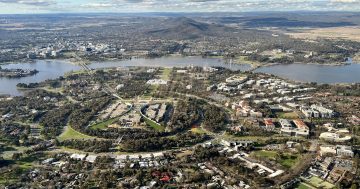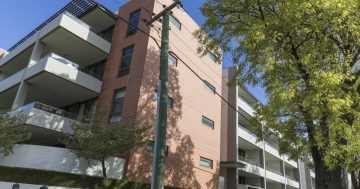
Canberra people keep spending, but less than half of local businesses expect to grow in the next 12 months. Photo: Tim Mossholder.
More than half of Canberra’s businesses are feeling uncertain about the year ahead, but with the Australian economy “on a knife edge”, the ACT is where you would want to be compared with the rest of the country.
A new quarterly survey from the Canberra Business Chamber shows a mixed outlook for local businesses with only 43 per cent positive about the present economic situation and about the same number (46%) expecting their business to grow over the next 12 months.
Only 13 per cent expect their business to actually shrink.
That fits with the latest Deloitte Access Economics Business Outlook that has the national economy facing global headwinds, a possible return to rising interest rates, falling investment and consumption, but the ACT is enjoying a much-needed buffer from strong growth in government spending on services and infrastructure in 2023-24.
And while retail and other spending may have nosedived elsewhere, Canberrans have still been shelling out, with household consumption estimated to have grown by 7.5 per cent in 2022-23, the fastest growth among the states and territories.
That is likely to taper in 2023-24 as the full effect of interest rate increases is felt, despite an anticipated easing of inflation.
But a tight labour market and high public service salaries will help mitigate cost of living pressures, the outlook says.
According to the business chamber survey, 22 per cent of businesses pointed to reduced customer demand as a big issue and only 9 per cent cited cashflow. But topping the list of concerns was the cost of doing business in the ACT (26%), and a third of those who operate in other jurisdictions said it was harder to do business here.
They blame higher payroll taxes, the cost of ACT rates, the new portable long-service leave arrangements, difficulty accessing local procurement opportunities, planning and development approval delays, and extra costs from new silica dust awareness training requirements for employees who will never visit sites where they are at risk.
Attracting and retaining staff was the second most significant issue for Canberra business at 24 per cent.
Some noted the advantage of being close to the Federal Government and its multiple agencies, although two areas of Commonwealth policy have some businesses worried – the cutting back in the use of consultants and the proposed new industrial relations changes.
The chamber said a significant proportion of respondents (35%) believed the IR changes would damage their business.
A further 18 per cent were unsure of the impacts at this stage, and nearly a third said they were considering cutting staff as a result and that the changes would mean a scaling-back of business and make it harder for ACT firms to tender for new work.
But there are positive numbers from Deloitte Access Economics that should comfort businesses.
Increased federal spending in health and social services is projected to drive a 3.7 per cent increase in public consumption of goods and services in the ACT in the coming financial year, around twice the average rate at the national level.
Also, a boost in public sector infrastructure spending will support the ACT economy, including progress on Stage 2 of the light rail system, the Monaro Highway upgrade, and redevelopment of the Australian War Memorial.
Growth in total public demand is expected to add 2.8 percentage points to gross state product in 2023-24, picking up much of the slack from private demand, especially the household sector.
Services exports, mainly education, are expected to grow by more than 30 per cent in real terms due to total international student enrolments recovering to a point higher than 2019 levels.
The outlook predicts relatively modest growth in private business investment over the next 12 months after strong increases in the March quarter of 2023 and a slight decline in the June quarter.
A decline in non-dwelling construction activity will be offset by increased purchases of machinery and equipment, especially vehicles and other transport equipment.
On the housing front, approvals for new dwellings have increased strongly in the first few months of the financial year, but the ACT will have to wait until 2024-25 to feel the full effects.
The outlook says that over the remainder of the current financial year, dwelling investment in the ACT is expected to decline as completions outpace commencements.





















